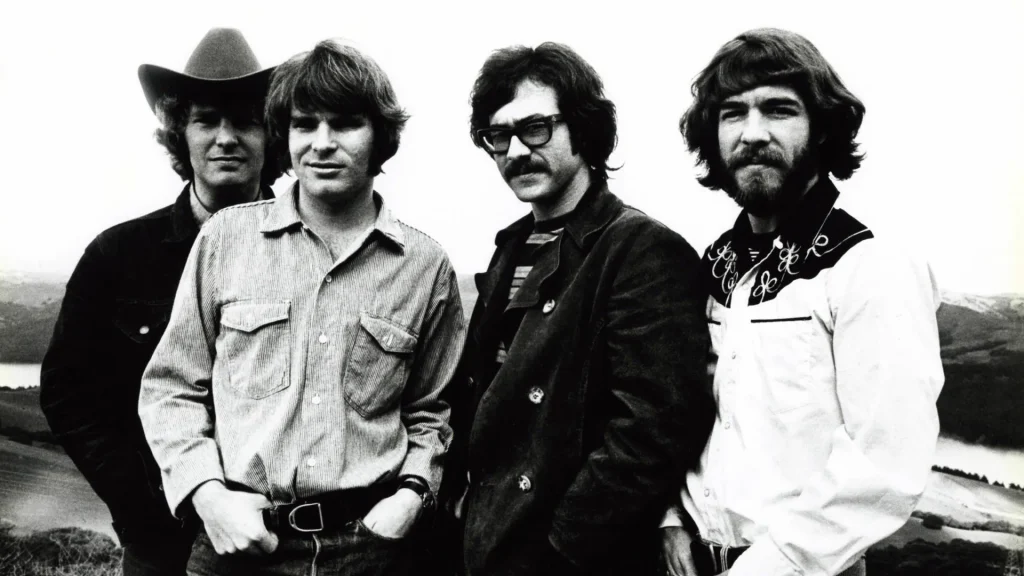
A Nostalgic Dive into the Rockabilly Era with “Ooby Dooby”
In the summer of 1970, Creedence Clearwater Revival, a band synonymous with the gritty, earthy sound of Southern rock, delighted fans with their rendition of “Ooby Dooby.” Originally penned by Wade Moore and Dick Penner and made famous by Roy Orbison in the mid-1950s, this track was a joyful throwback to the rockabilly roots that shaped much of modern rock music. CCR’s version was nestled within their fifth studio album, Cosmo’s Factory, a record that stood as a towering testament to their prolific output and musical prowess. The album itself climbed to number one on charts around the world, including the Billboard 200 in the United States, though “Ooby Dooby” wasn’t released as a single and hence didn’t chart independently.
“Ooby Dooby” is a song that revels in simplicity and raw energy, capturing the exuberance of early rock ‘n’ roll. Its infectious rhythm and carefree lyrics transport listeners back to an era where music was a visceral experience, felt as much in the body as it was heard. For those who lived through the transformative years of the 1950s and 60s, CCR’s rendition may evoke fond memories of youthful exuberance and dance halls filled with twirling skirts and tapping feet.
The story behind Creedence Clearwater Revival’s decision to cover “Ooby Dooby” is deeply rooted in their appreciation for their musical forebears. John Fogerty, the band’s lead vocalist and principal songwriter, often spoke about his admiration for artists like Roy Orbison who paved the way for bands like theirs. By including “Ooby Dooby” on Cosmo’s Factory, CCR paid homage to these influences while also showcasing their versatility as musicians capable of bridging different eras of rock music.
Listening to CCR’s version of “Ooby Dooby,” one can appreciate how they maintained the song’s original spirit while infusing it with their signature swamp rock flair. The band’s rendition is faster-paced compared to Orbison’s, brimming with an infectious energy that makes it impossible not to tap along. This version highlights Fogerty’s distinctive voice and guitar work, which together create a sound that feels both nostalgic and refreshingly novel.
For older generations revisiting this track, there is a certain magic in its familiarity. It serves as a reminder of how music can be both a time capsule and a bridge across generations. The lively beat and joyful spirit of “Ooby Dooby” might recall memories of jukeboxes glowing in dimly lit diners or perhaps evenings spent listening to records in cozy living rooms.
Moreover, Creedence Clearwater Revival’s choice to include such a track on an album as varied as Cosmo’s Factory speaks volumes about their understanding of music as an evolving dialogue between past and present. The album itself is a mosaic of sounds—ranging from bluesy tunes like “Run Through the Jungle” to rock anthems such as “Up Around the Bend.” Within this eclectic mix, “Ooby Dooby” stands out as an emblem of joy, reminding listeners that even amidst innovation, there is always room to celebrate where it all began.
In conclusion, Creedence Clearwater Revival’s rendition of “Ooby Dooby” is more than just a cover; it is a celebration of musical heritage wrapped in nostalgia. It invites listeners, especially those who have journeyed through decades alongside these evolving sounds, to reminisce about simpler times when rock ‘n’ roll was revolutionizing society one beat at a time. For anyone who has ever found solace or joy within the notes of a beloved song, CCR’s “Ooby Dooby” serves as both a tribute to the past and an invitation to keep dancing forward into the future.
